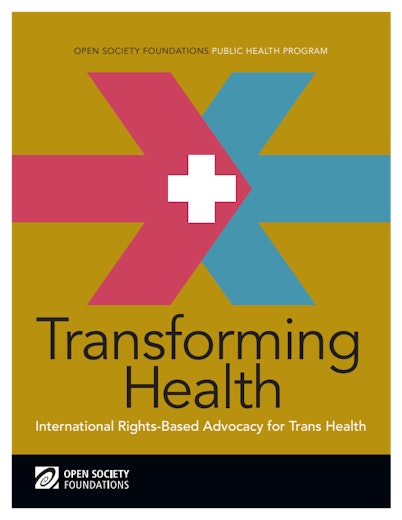Innovating for Trans Health: Groups Across Globe Confront Gaps
By David Scamell
Robert has ovarian cancer. He visits 20 doctors, but no one will treat him. One doctor tells him that the women in the waiting room would be too embarrassed to see a man waiting beside them.
Tyra lays bleeding on the street after a car accident, semi-conscious and begging for help. The first-responder at the scene is unmoved. He refuses to administer first aid once he discovers she is a trans woman.
These stories—and the many others like them—are all too real. Every day, trans people around the world are denied medical care because of who they are.
- A 2012 South African study found that stigma and abusive behavior by providers towards trans people prevented patients from receiving services, including HIV testing and treatment.
- Research conducted across Europe in 2008 showed that approximately 80 percent of trans participants had been denied state funding for hormonal therapy and for gender reassignment surgeries, and less than a third reported receiving adequate health care from professionals when requested.
- In the United States, a 2010 national transgender survey reported that many trans people postponed visits to health providers because of discrimination. The same survey found that more than a quarter of respondents had been harassed in a medical setting.
Thankfully, trans communities are doing something about it. A new report by Open Society Foundations, Transforming Health: International Rights-Based Advocacy for Trans Health, found that trans people across the globe are building alliances to promote health, end the discrimination and violence they face, and fight for policies that respect gender diversity and human rights.
- In Moldova, an advocacy group partnered with the Ministry of Health to help trans people change their gender on official documents. This effort has made it easier for trans people to obtain coverage from health insurance providers.
- In New Mexico, a trans speakers bureau travels across the state talking to medical providers, law enforcement, service providers, and students about the lives and experiences of trans people. Helping to combat stereotypes.
- In Bangladesh, the hijra—physiological males who have feminine gender identity—established their own community health center to provide services like HIV and AIDS testing and treatment.
- In South Africa, trans individuals, their doctors, and government officials joined together to map out a future for improved trans health.
These examples are among the 16 advocacy initiatives addressing trans health that are profiled in Transforming Health. The report examines the circumstances that contribute to these unacceptable findings and offers a representative sampling of the much wider world of work being done by trans communities to improve health.
Governments, funders, health professionals, and international bodies like the World Health Organization, are encouraged to embrace these models, and commit to advancing a rights-based trans health agenda.
Robert and Tyra, and those like them across the world, deserve better.
Trans is an umbrella term used by many people who do not identify with their assigned sex at birth, frequently understood to include both transgender and transsexual people.
Until June 2014, David Scamell was a program officer for the Sexual Health and Rights Project of the Public Health Program.

